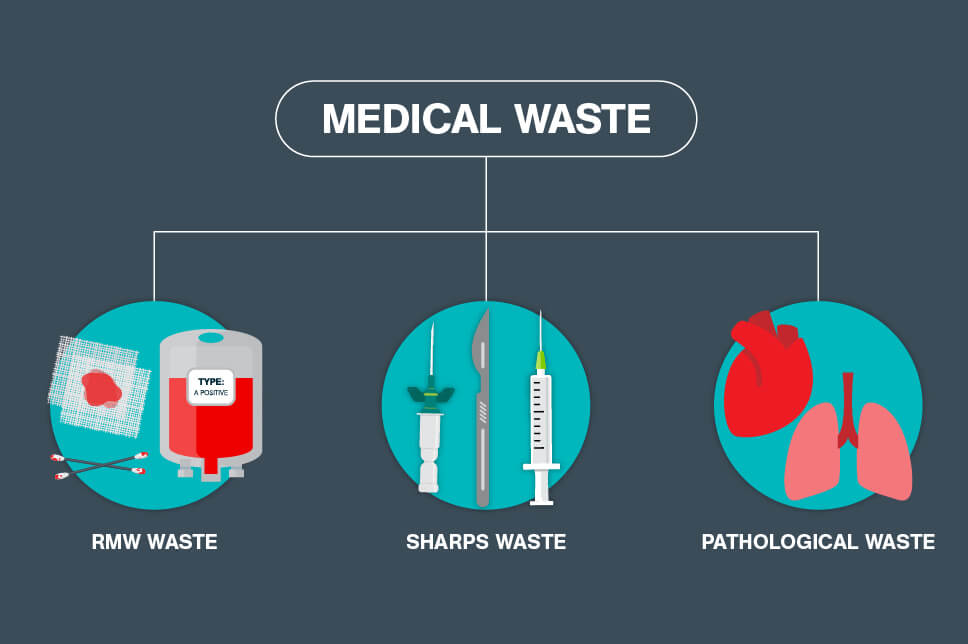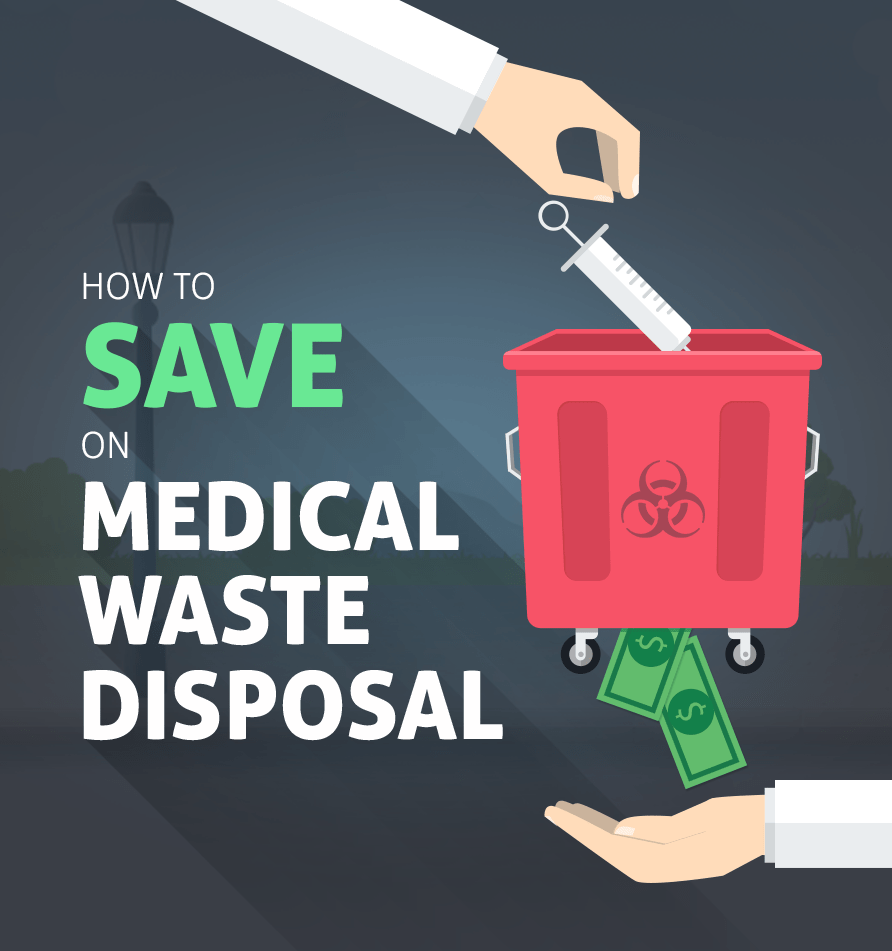Making Sure Safe Handling and Disposal of Medical Waste
Making certain secure handling and disposal of medical waste is of critical significance in healthcare settings. Inappropriate monitoring of clinical waste can posture substantial dangers to the atmosphere, public health and wellness, and health care employees. In this introduction, we will discover the relevance of appropriate medical waste monitoring, the threats connected with inappropriate handling and disposal, as well as the standards and techniques that can be implemented to guarantee its safe disposal.
Importance of Correct Medical Waste Management
Correct clinical waste monitoring is of utmost value in guaranteeing the safety and wellness of medical care specialists, clients, and the general public. Medical waste describes any kind of waste generated by health care centers throughout the diagnosis, therapy, or immunization of pets or humans. This waste can posture major wellness threats otherwise managed and dealt with effectively.
One of the main factors why appropriate clinical waste management is vital is to avoid the spread of transmittable illness. Clinical waste, such as used needles, polluted dressings, and biological products, can carry dangerous virus. If not taken care of and thrown away appropriately, these pathogens can be transferred to medical care employees, patients, waste handlers, and also the basic public, leading to the prospective episode of illness.
In addition, correct medical waste monitoring aids protect the environment - medical waste disposal. Medical waste consists of unsafe products, consisting of chemicals, pharmaceuticals, and contaminated compounds. When not taken care of suitably, these substances can infect soil, water bodies, and the air, presenting a significant threat to communities and public health and wellness
Moreover, reliable clinical waste management ensures compliance with international criteria and regional regulations. Governments and governing bodies have developed standards and methods to make certain the secure handling, storage, transportation, and disposal of clinical waste. Abiding by these regulations is essential to avoid legal effects and keep the online reputation and reputation of healthcare facilities.
Dangers of Improper Handling and Disposal

If clinical waste is not correctly disposed of,Clients can also be revealed to these transmittable conditions. As an example, if contaminated needles or various other sharps are not taken care of in designated puncture-proof containers, they may inadvertently prick patients, resulting in possible infections. If clinical waste is not segregated appropriately, there is a threat of cross-contamination in between different kinds of waste, more increasing the opportunities of condition transmission.
Incorrect disposal of medical waste can additionally have detrimental impacts on the setting and the basic public. If medical waste is not treated and disposed of properly, it can contaminate water resources, dirt, and air, bring about the spread of diseases and toxins. This can have lasting effects on environments and public wellness.
Standards for Safe Handling of Medical Waste
Applying effective procedures for the safe handling of clinical waste is necessary in making certain the security of healthcare specialists, individuals, and the public. These guidelines are crucial in reducing the risks related to the handling and disposal of clinical waste, such as infections, injuries, and environmental contamination.
Most importantly, healthcare facilities should develop a comprehensive waste monitoring plan that follows local, national, and global laws. This strategy needs to include clear directions on waste partition, product packaging, storage space, labeling, and transportation. It is essential to separate various kinds of waste, such as sharps, contagious products, drugs, and non-hazardous waste, to stop cross-contamination and promote secure disposal.
Furthermore, healthcare personnel should get extensive training on correct waste handling methods. They need to be educated on the potential threats of clinical waste, the appropriate use individual safety tools (PPE), and the proper procedures for taking care of, carrying, and disposing of different types of waste.
In addition, healthcare centers need to routinely keep an eye on and investigate their waste monitoring techniques to guarantee conformity with guidelines. This consists of performing regular inspections, evaluating waste handling treatments, and providing feedback and training to team member.
Reliable Strategies for Waste Disposal
To ensure the safe handling and disposal of medical waste, it is necessary to utilize efficient techniques for garbage disposal. Medical waste can present considerable risks to public wellness and the setting if not dealt with and taken care of effectively. Therefore, medical care centers and waste monitoring companies have to carry out ideal strategies to mitigate these threats.
One effective technique for waste disposal is segregation. It entails separating various sorts of medical waste based upon their qualities. Partition allows for the proper treatment and disposal of each waste classification, minimizing the possibility for contamination or damage. Healthcare centers need to offer clear standards and training to personnel on exactly how to set apart waste properly.

Additionally, medical care facilities should work together with qualified waste management firms to make sure proper disposal of medical waste. These business have the know-how and equipment required to securely get rid of and deal with of clinical waste in conformity with laws and ideal methods.
Training and Education for Health Care Professionals
Medical care experts play a vital function in making certain the risk-free handling and disposal of medical waste through extensive training and education and learning. It is important for medical care service providers to have a deep understanding of the possible risks connected with medical waste and the proper methods for its monitoring. By receiving correct training, health care experts can reduce the prospective transmission of contagious illness, prevent environmental contamination, and secure both themselves and the general public.

In addition, training programs should stress making use of personal safety equipment (PPE) and correct hand health techniques when handling medical waste. medical waste disposal service. Healthcare experts must understand just how to appropriately utilize and dispose of PPE to safeguard themselves from possible exposure to harmful products. They should likewise be informed on the value of regular handwashing and the proper use hand sanitizers to decrease the spread of transmittable diseases
Continuing education and learning and normal updates on medical waste administration methods are important for health care experts. As regulations and guidelines advance, it is important to keep health care providers notified about any changes in methods and ideal techniques. This will make sure that they remain current and maintain a high standard of safety and security in dealing with and getting rid of of clinical waste.
Conclusion
In conclusion, proper handling and disposal of medical waste is essential to guarantee the security of health care experts, patients, and the atmosphere. By sticking to these techniques, we can alleviate the prospective dangers linked with medical waste.
Medical waste refers to any waste created by medical care facilities throughout the diagnosis, treatment, or booster shot of pets or people. If medical waste is not set apart effectively, there is a danger of cross-contamination between various types of waste, further boosting the chances of disease transmission.
It is essential to separate various types of waste, such as sharps, transmittable materials, drugs, and non-hazardous waste, to prevent cross-contamination and advertise safe disposal. WasteX Medical Waste Disposal.
To make certain the safe handling and disposal of clinical waste, it is important to employ reliable methods for waste disposal. In addition, healthcare centers need to establish a routine waste collection and transport timetable to prevent waste accumulation and reduce the risk of crashes or contamination.